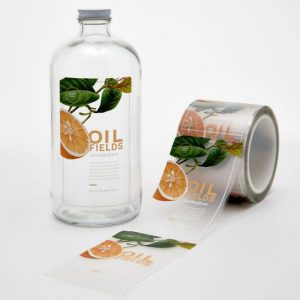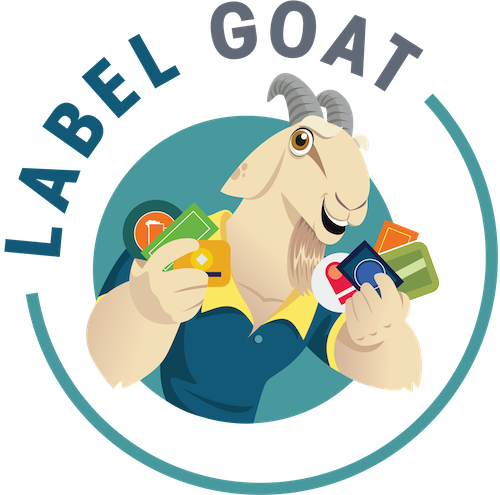The Importance of Labeling Your Products
Published on June 28, 2023


In the present world, diverse and abundant options are available for consumers in the market. You’ll be greeted with many products whenever you enter a store or browse online. Your product must have enticing and alluring labeling to stand a chance in this competitive market. Besides standing out, what is the importance of labeling your products? Let’s find out!
Product Identification
Labeling ensures that your product stands out among the competition, catching the attention of potential customers. They help in the instant recognition of your brand or product. Product labels guide customers through the maze of choices and help them find the exact product they need. People will glance slightly at the company sticker before buying the commodities, so having a bold and alluring sticker is necessary.
Furthermore, labels provide essential information about the product itself. They spill the beans on its name, country of origin, key features, and all the vital information. Customers may need clarification when confronted with a choice between two identical items. In such cases, a brand label enables them to compare two products and identify the one they need.
Branding and Marketing
Labels are more than stickers. They’re a powerful tool for branding and marketing the product. Many businesses fail to capture the attention of customers leading to nowhere. If people never notice your products on the shelves of a Walmart or 7-Eleven, how would they even try them? So a compelling product label is essential for establishing a brand, that customers are eager to try. Remember, a unique label will give your product an edge to stand out from your rivals, so be as creative as possible.
A well-designed custom label with creative use of colors, typography, images, and graphics is the key to up your sales. They evoke a sense of familiarity, joy, elegance, and curiosity, alluring individuals to buy your product over others. Think of the labels as a minimized billboard imprinted on the consumer’s brain, fostering recognition and instilling trust in the brand. Moreover, in this digital age of e-commerce and online shopping, a familiar brand label is always a deciding factor for purchasing.
Counterfeit Prevention
Labeling plays a major role in keeping counterfeits at bay and keeping your brand and customers safe. You can opt for anti-counterfeiting measures by integrating holographic stickers, QR codes, and tamper-evident seals on your labels as a first line of defense. Plus, the unique design elements and trademarks of custom labels are difficult to reproduce accurately. They act as visual cues, reassuring buyers that they bought the real deal, not some cheap counterfeit.
Prioritizing counterfeit prevention through custom labels establishes your brand’s commitment to delivering top-notch service and ensuring customer safety. It cultivates a positive perception of your brand and safeguards your brand’s reputation. Also, the presence of QR codes on smart labels allows people to verify the genuineness of the goods, educating them about counterfeits.
Product Content & Usage
Product labels act as a transparent window, revealing the ingredients and nutritional information customers need to make informed choices. They empower customers to purchase products aligning with their needs or principles through clear and factual information on ingredients and allergens present. Everything is printed on the label, whether it’s a gluten-free snack, sugar-free drink, or a vegan skincare product.
Furthermore, consumers prefer goods offering instructions and tips on how to use the product effectively. Cooking instructions for foods and usage instructions for cosmetics and pharmaceuticals simplify and elevate user experience, ensuring successful outcomes. Through this, you can build trust and communication with your customers fostering loyalty and increased sales. Clear usage guidelines also help your customers avoid any potential mishaps.
Consumer Safety
Product labels are a vital source of information regarding warning signs, storage instructions, and allergens, ensuring consumer safety. These labels alert customers to potential hazards and encourage them to exercise caution when handling the products, whether it’s dietary restrictions or child safety. Also, information about allergens helps people avoid the product, which could trigger an adverse reaction resulting in a medical emergency. Prioritizing comprehensive labeling fulfills legal requirements and saves your company from potential lawsuits.
Clear label storage instructions help consumers maintain product quality, effectiveness, and safety. Some products may require refrigeration or a specific temperature, and some may need to be avoided from direct sunlight. These instructions assist consumers in prolonging the shelf life of the goods and prevent them from spoiling or damaging. Moreover, expiry dates on product labels encourage people to use them before they’re unsafe to use.
Product Traceability
Shipping labels are attached to the package, box, or container when you’re shipping the goods from the factory for distribution. Barcodes, batch numbers, and product numbers on these labels help identify and trace your products while managing the inventory effectively. Each shipping label is inscribed with a distinct barcode that helps track its movement throughout the supply chain, allowing for accurate production and stocking.
The batch numbers on shipping labels ensure that only the freshest items are shipped to the market. You can also identify and isolate the products according to the batch if any issue is found. It minimizes the impact on consumers and allows swift corrective actions preventing your brand’s reputation from getting tarnished.
Legal Compliance
Labels legally comply with FDA regulations and shield your business from legal obstacles. Labels accurately represent the product and provide clear information about the ingredient’s contents and other details preventing any claims of misrepresentation or false advertising. Including the benefits and health risks of using the product on the label reduces the risk of customers feeling deceived or misled.
Certain industries, such as cannabis products and alcoholic beverages, have specific labeling standards set by the FDA and other regulatory bodies. Details about THC and CBD, content, and usage guidelines, are present on cannabis-containing cosmetics products, while the concentration of alcohol and age limitation is mentioned on alcoholic beverages. These attributes ensure that your company complies with federal and state law allowing for smooth operation and minimizing legal hurdles.

